Waking your baby for feeding is related to how old they are, their weight, and their health. Therefore, it is crucial that you learn the cues your baby uses to tell you when they are hungry. But this is not the best approach when your baby is less than 4 months old.
Your reluctance to wake your slumbering child is entirely relatable. How cute and serene they look when they are asleep! And when you think that they could be awake and fussy instead, you want to let them be and let nothing spoil their peaceful time sleeping.
However, pediatricians recommend you wake your baby for feeding three or more times at night most nights for the first two weeks of the baby's life. It is even more crucial to do this in the first two weeks as most babies are liable to lose weight in the first few days of birth.
You must consider some insights in addressing such questions as "Should I wake my baby up to feed." These questions and insights are vital to ensure your newborn's or months-old baby's health.
Should I Be Waking My Newborn to Feed?
You must know that a newborn needs to be fed every 2 to 3 hours daily. This schedule should continue for the first 2 weeks of life. Then, even though they are sleeping, which will be the case for a newborn over 70 percent of the day, you need to wake your baby up to feed gently.
It is going to feel like a grind during these first few weeks. Yet, keeping up with your baby's feeding needs is vital for proper development and general health. So, even if they are asleep, you must wake them up every few hours to feed them – even at night.
There are fundamental reasons why you need to wake your newborn up for feeding, especially in the first 2 weeks.
Why Should You Wake Newborns for Feeding?
The first thing you need to consider when waking your baby to feed is that newborns grow quickly. The rate of metabolism in your little baby's body is much higher than yours per mass. So, their body is like an eating machine because all they do at this period of life is eat and grow.
The American Academy of Pediatrics (AAP) recommends that you wake your baby to feed if they sleep more than 4 to 5 hours at a stretch in the first two weeks. And there are more reasons why you need to frequently feed your baby and wake them up if they sleep through a scheduled feeding time:
- Your Baby's Stomach Empties Quickly
Babies digest breast milk quite rapidly. And that couples with the fact that your baby's stomach is only a little larger than a ping-pong ball in volume. This means that your newborn has a physiological need to nurse every 2 to 3 hours.
A formula-fed baby can go up to 4 hours between feedings in the first month because formula takes longer to digest. And yes, giving your baby breast milk differs from feeding them formula.
- Your Baby Might Snooze Through Hunger
Babies usually send out cues like lip-smacking, rooting, and finger-sucking when hungry. And when their more polite signals go unnoticed, they'll let out a strong wail to catch your attention and tend to their need to feed.
Yet, there are times when a baby is too sleepy to complain and snooze their feeding alarms. At such times, you may wonder, "Should I wake 'baby' to feed?"
It is pertinent that you wake up your baby to feed them. You can wake the baby up at night to eat just before bed.
- Your Baby Needs to Regain Weight
Should I wake my newborn to eat? Yes. Because not feeding adequately can slow down your baby's weight gain. Newborns tend to lose between 5 and 10 percent of their body weight in the days after birth. However, this weight loss depends on the manner of delivery. So, babies must spend the next few weeks after birth replenishing lost weight.
Not feeding well in the first few days of life can risk the baby becoming jaundiced or having low blood sugar.
- You Need to Increase Your Milk Supply
Should I wake my baby up to feed them if I only breastfeed? Especially if you are breastfeeding.
Breastfeeding is about demand and supply. Your baby demands it, and your body produces it. And not frequently feeding can decelerate your milk production. Also, in the first few days after birth, your body needs to get used to produce a sufficient amount for your baby. So, if you don't feed them around the clock, what your body will make later may become inadequate for the child.
Note that there's no such thing as over-nursing your newborn, so ensure you breastfeed your little one every 3 hours.
- Crying Is a Late Sign of Hunger for Your Baby
You must understand that your newborn's crying is one of the late, negative, or extreme expressions of discomfort. The cry of a newborn can tell you whether they are hungry or if you need to see a doctor when feeding doesn't pacify them.
Also, note that crying expends a lot of energy for a baby. Thus, it is better to avoid them reaching the point of crying before you get to feed them. So, look for earlier signs of hunger like lip smacking, hand-to-mouth activity, rooting, and stirring while asleep.
How to Wake Your Baby for Feeding
After answering the question, "do I need to wake my newborn to feed," you need to know the right way to wake your baby for feeding. So, if your baby is sleeping through a feeding time, use these techniques to rouse them:
- Feed your baby when they are in an active sleep moment – or REM sleep. You'll identify REM sleep when your baby moves their arms and legs, alters facial expressions, and flutters eyelids. Efforts to rouse your newborn for feeding may prove abortive if they are in a deep sleep.
- Gently unswaddle your baby. If sleeping persists, try undressing them too.
- Changing your baby's diaper will most likely wake them. Stroke the hands and soles of their feet while you change them.
- Holding your baby upright will often cause them to open their eyes.
- Dimming the lights may seem counterintuitive, but if the lights are too bright in the room, your baby may try to get more comfortable by tightly shutting their eyes. So, dim the lights before you proceed to feed them.
- Talk and sing to your baby to rouse them, and make eye contact immediately when they open their eyes. Being sociable is an excellent way of ensuring your baby always awakes when they hear you.
- Massaging your baby's hands, arms, feet, and shoulders will wake them up. Little ones are touch-sensitive.
- Place a cool washcloth on your baby's forehead. Ensure the washcloth is not cold.
How Long Should Night Feeding Last?
Your next question may be, "For how long should I wake my newborn to eat at night time?"
Once you rouse your baby and they latch on to suckle, ensure the nursing session lasts long enough for them to empty one breast. Again, the aim is to get them to ingest the fat-rich hindmilk necessary for their growth.
Some babies empty one breast in 20 minutes or longer. Other babies can finish up in 10 minutes. So, let your baby take as much time as they need to empty one breast before you put them back to bed.
If you are using a bottle to feed your baby, give them the equivalent of one full feed for their age and stage.
How Do You Keep Your Baby Awake During Feeding Time?
Your baby will most likely nod off during suckling because of the warmth and comfort of your body. To know if your baby is sleeping during feeding or not, look for the rhythmic suck-swallow-breath pattern in their cheek, jaw, and ear.
If your newborn dozes off, try rousing them by shifting and repositioning them. For example, you may dribble some milk on his lips or jiggle your breast or bottle in their mouth to get them sucking again.
What if My Baby Doesn't Wake Up to Eat?
Some babies wake up themselves on schedule to feed. Others may sleep through mealtime if you don't rouse them. None of these tendencies is a negative issue. "So, should I be waking up my newborn to feed?"
If your baby doesn't wake up to feed, try being a little more vigorous with your nudges. Sing and talk a little louder when you rouse them. Completely undress your baby or take them into another room for feeding. A change of location can sometimes do the trick.
If your attempts don't work, let them snooze for another hour or so, then try waking them up. If sleeping persists and your baby misses more than two feedings, consult your pediatrician. There might not be anything seriously off, but your doctor may need to provide some assistance to get you and your baby back on track with feeding.
Final Thoughts
In dealing with the question of "should I wake my newborn to eat," know that the answer is "yes, you should." The first few days a vital to setting up the right rhythm for your baby and your body. But be sure you both will have settled into a regular and comfortable eating and sleeping pattern by the sixth week. However, that depends entirely on your baby's unique needs.
Some babies want to nurse every two hours like clockwork, while others will be fine sleeping 3 to 4 hours between feeding sessions. Understand what works for your baby. Also, know that periods between feedings will increase gradually as your baby grows.
If you're bothered about whether your newborn is getting enough to eat or struggling with rousing them to feed at least 8 times in 24 hours, talk to your pediatrician about whether your baby's weight gain is on a healthy diet progression.
Finally, check for dirty diapers regularly. Look for poopy discharges throughout the day and 8 to 10 wet diapers a day. This would help give an idea of your child's metabolism rate and feeding needs.
Best wishes to you and the baby!
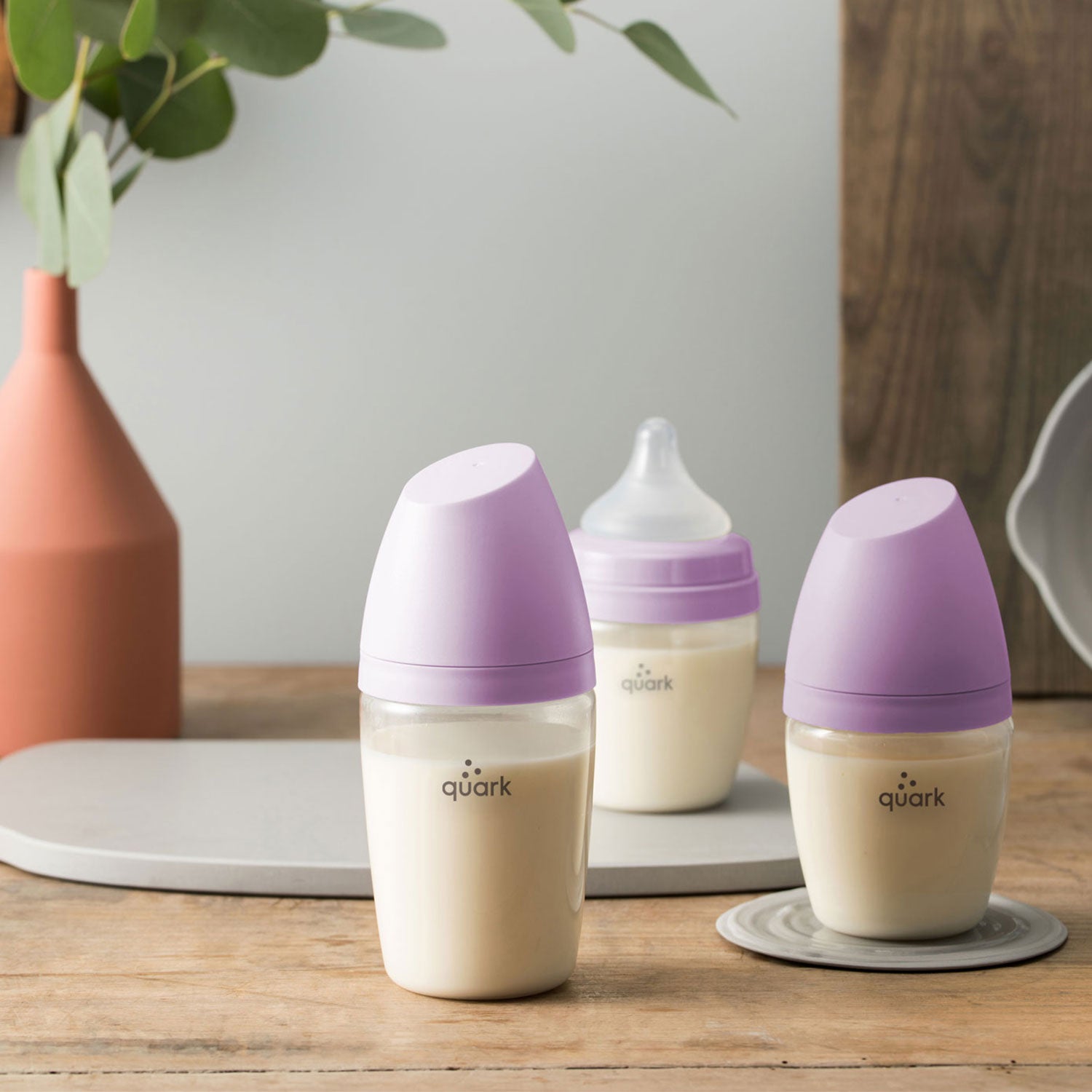




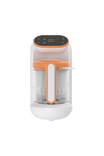
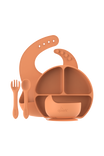
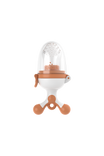


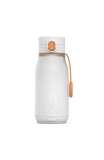
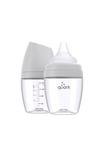
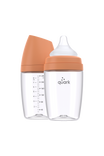
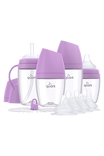
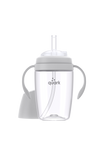
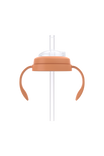
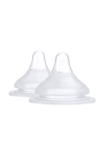
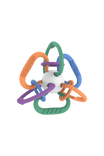




Leave a comment
All comments are moderated before being published.
This site is protected by reCAPTCHA and the Google Privacy Policy and Terms of Service apply.